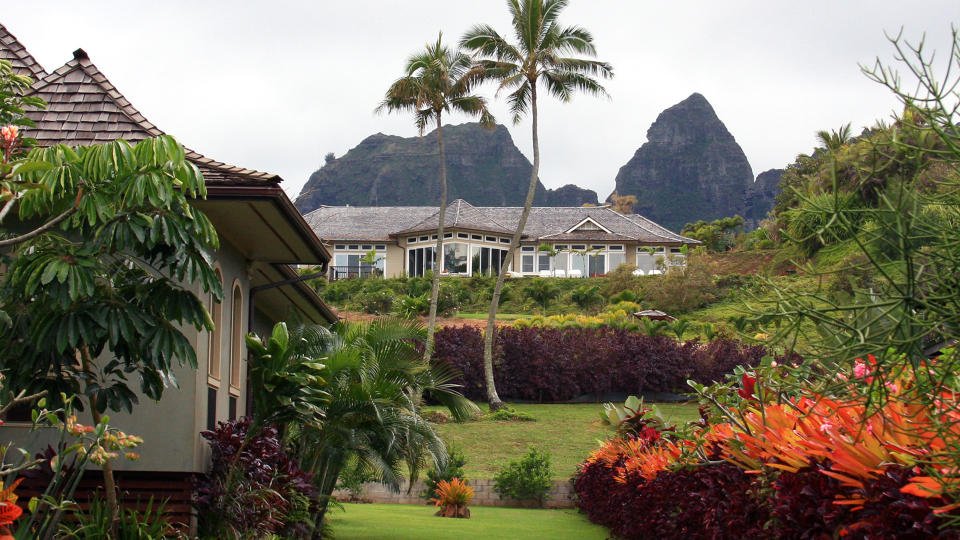
Living in Hawaii sounds like a fantasy come to life — all the days spent on the beach, enjoying the majestic waters surrounding the island you now call home. However, that’s not true for everywhere in Hawaii. In fact, some cities should definitely not be considered places to buy a home for a variety of reasons, some of which might surprise you.
Check Out: 5 Worst California Cities To Buy Property Over the Next 5 Years, per Real Estate Agents
Try This: Become a Real Estate Investor for Just $1K Using This Bezos-Backed Startup
GOBankingRates connected with a handful real estate agents to find out what the worst cities in Hawaii are to buy property over the next five years.
For You: 20 Best Cities Where You Can Buy a House for Under $100K
Wealthy people know the best money secrets. Learn how to copy them.
6. Hilo (Big Island)
Average Home Price: $450,000
There is a pretty big reason why deciding to purchase property in Hilo is not the best investment — it is due to the volcanic activity that’s been known to wreak havoc on the town in the past and could do so in the future.
“Hilo is close to active volcanoes, which can pose a significant risk to property and deter potential buyers,” Colten Claus, an Associate Broker with 8z Real Estate, who noted that “Insurance premiums are higher due to natural disaster risks.”
“While Hilo offers scenic beauty, it’s prone to volcanic activity and heavy rainfall, impacting property desirability,” agreed Justin Godur, the CEO and founder of Capital Max who also said this could “…hinder long-term investment potential.”
Beyond that, there are limited economic opportunities within Hilo, as Claus described it, “…with fewer opportunities outside of agriculture and tourism.”
5. Kailua-Kona (Big Island)
Average Home Price: $700,000
After the devastating fires in 2023, it was brought to light that Hawaii is largely dependent on tourism to keep its economy afloat, which is all the more true in Kailua-Kona.
“The local economy is highly dependent on tourism, which can be volatile,” said Claus.
Basic costs of living are incredibly high, plus you might not love the structural integrity of the piece of property for sale.
“The cost of living is high, which can deter long-term residents and affect the rental market,” explained Claus, adding that “Limited infrastructure development can hinder property value growth.”
To put it bluntly, Godur stated “Despite its tourist appeal, Kailua-Kona’s market is oversaturated.”
4. Lihue (Kauai)
Average Home Price: $800,000
Lihue’s remote location, coupled with high property prices and a limited job market, makes it less accessible and attractive for potential buyers, according to Claus.
“Prices are already high with limited room for appreciation,” Claus remarked, observing how outside of agriculture and tourism “[t]he job market is not diverse” in Lihue.
3. Waimea (Big Island)
Average Home Price: $550,000
Claus described how much of the land on Waimea is zoned for agriculture, limiting residential development and creating an economic silo of isolation.
“Economic opportunities are limited, making it less attractive for long-term residents,” Claus said.
In addition, if you are seeking sunny island days, you won’t find them often in Waimea because the area receives a lot of rain, which, according to Claus, can affect property desirability and maintenance costs.
2. Pahoa (Big Island)
Average Home Price: $250,000
Located in the Puna District, Pahoa is susceptible to lava flows, making it a risky investment, according to Godur.
While the average home price is pretty low, Godur advised that the threat of volcanic activity overshadows potential gains and isn’t worth the risk of investment or endangerment.
“…proximity to active volcanic zones makes it a hazardous investment,” shared Godur, “…but the constant risk of natural disasters reduces its long-term attractiveness.”
1. Wailuku (Maui)
Average Home Price: $650,000
“Wailuku has a high cost of living compared to other parts of Maui,” explained Claus.
The economics of this Hawaiian town also tend to fluctuate based on how the tourist market is ebbing and flowing at any given time of the year.
“Property values are heavily influenced by the tourism market, which can be unpredictable,” Claus pointed out.
If that were not enough, Wailuku is faced with some serious infrastructure challenges, including improvements to buildings and property that have been left unchecked, only hindering long-term growth and property value appreciation.
More From GOBankingRates
This article originally appeared on GOBankingRates.com: 6 Worst Hawaii Cities To Buy Property Over the Next 5 Years, per Real Estate Agents

